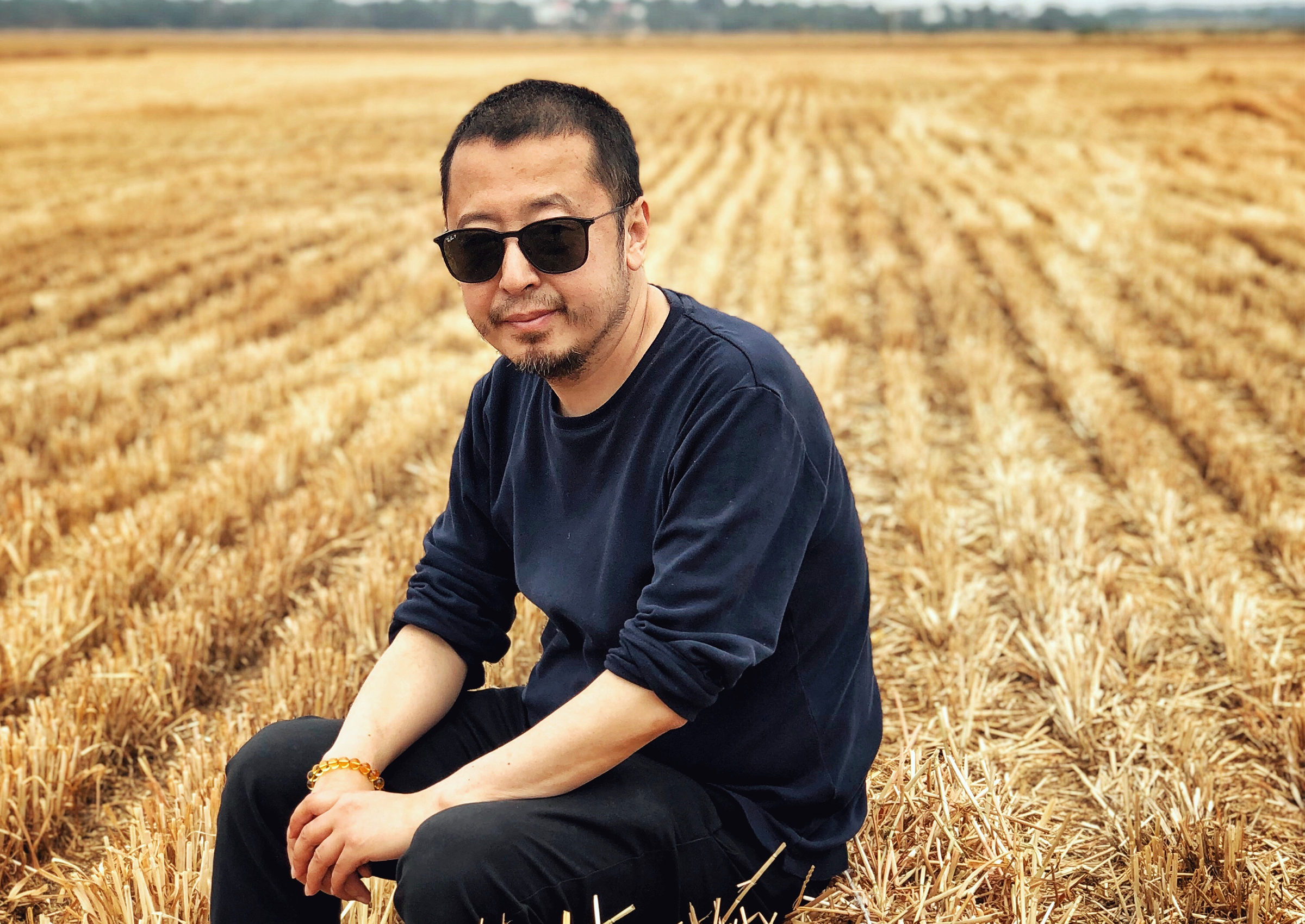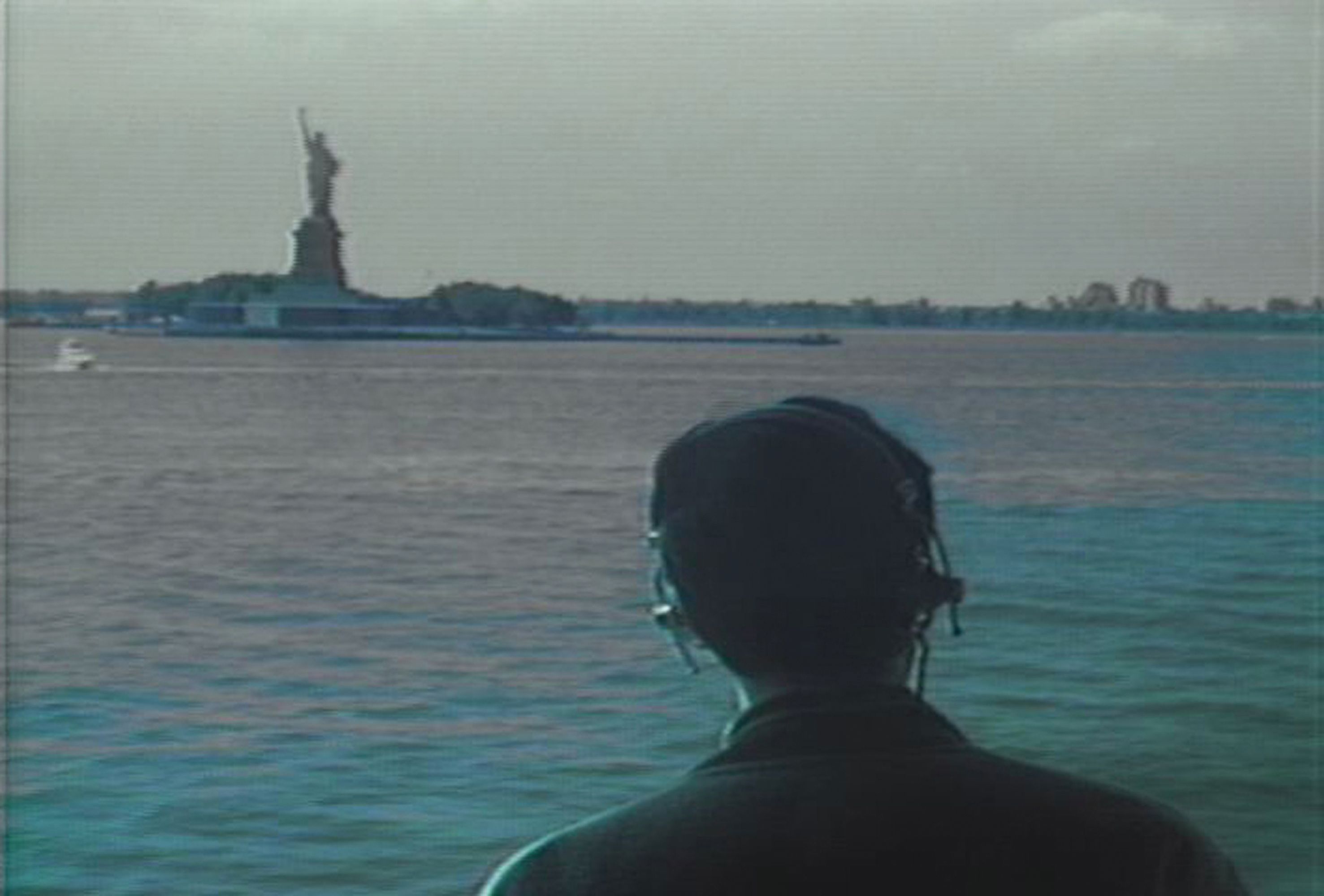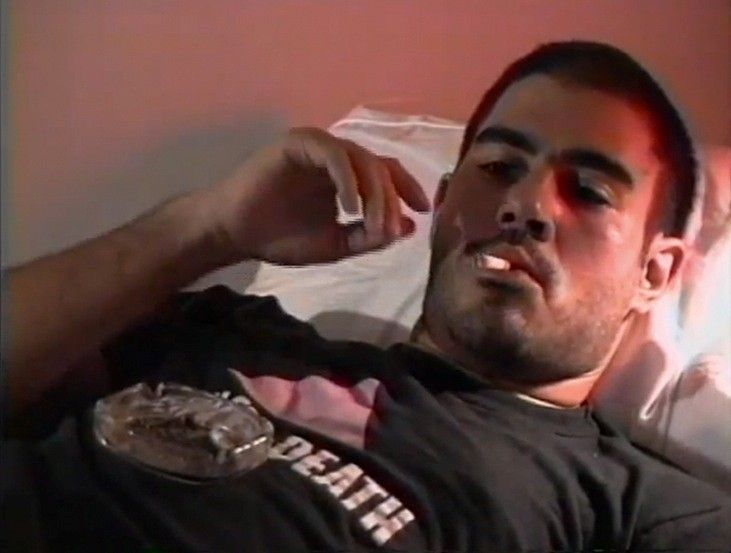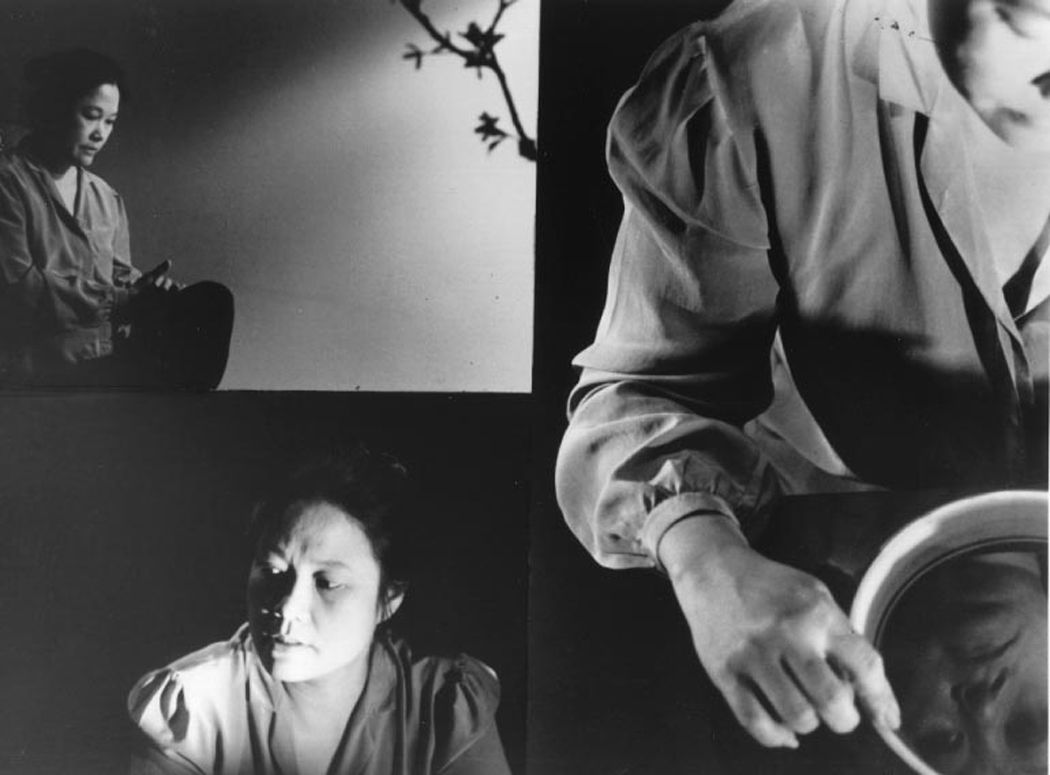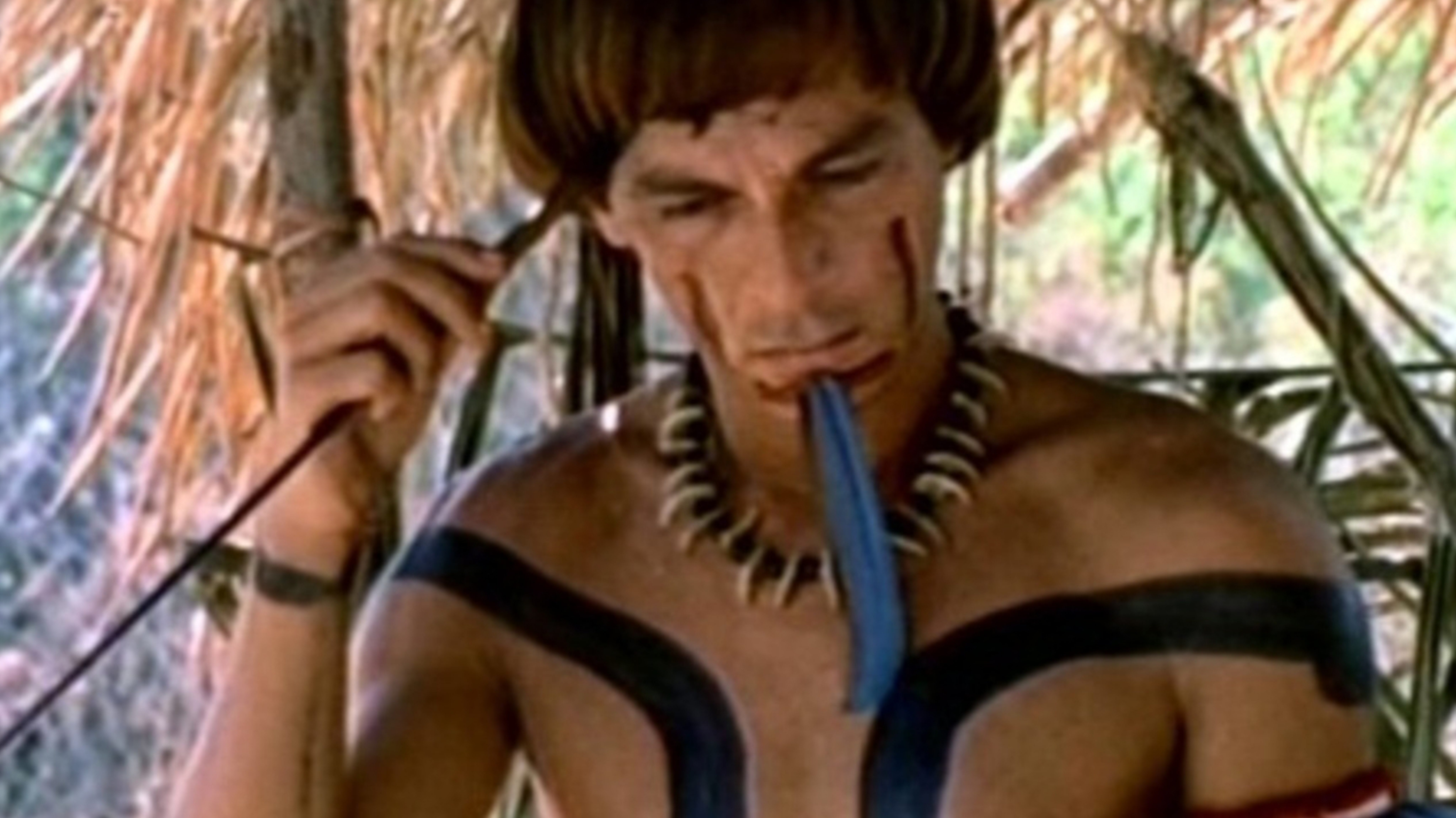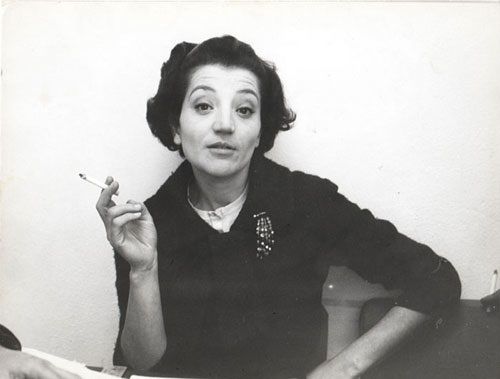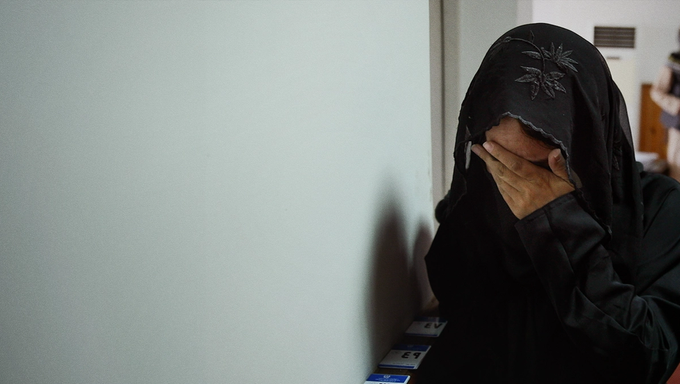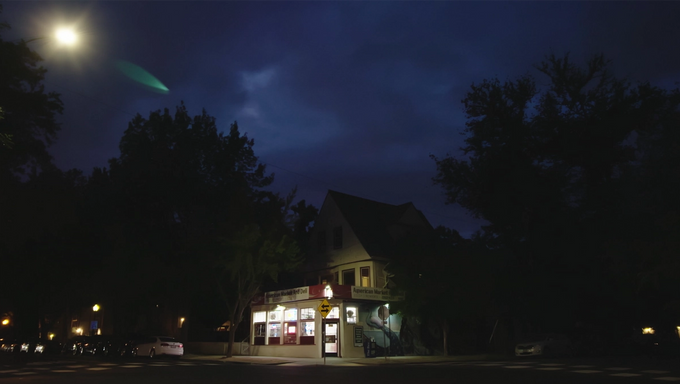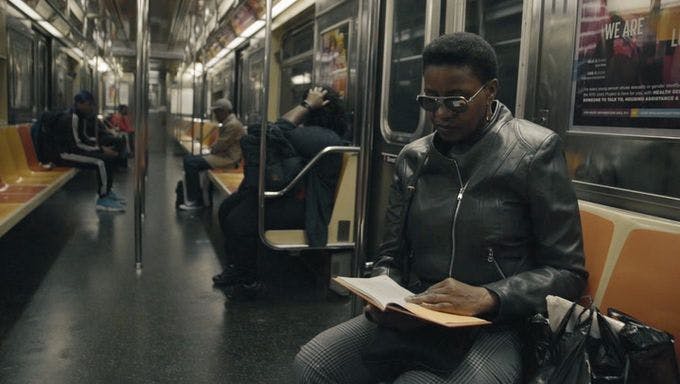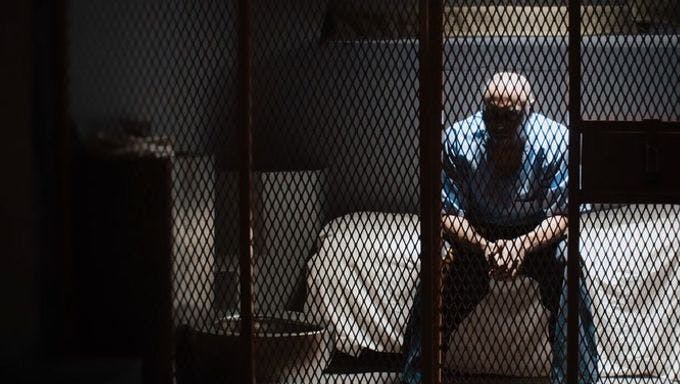The term “minor work” has been bandied around rather deceptively to describe Swimming Out Till the Sea Turns Blue, the latest work by Chinese auteur Jia Zhangke. Structured as a series of interviews with writers from Jia’s native Shanxi province, the film might seem like an unusually ruminative, even rambling, follow-up to the taut thrills and ambitious drama of Ash is Purest White (2018) and Mountains May Depart (2015). But Swimming Out is no less epic than its precursors in its narrative reach. Through interviews exploring the memories of four writers (Ma Feng, Jia Pingwa, Yu Hua, and Liang Hong, each born in a different decade between the 1940s and ’70s), the film attempts a people’s history of China; a sweeping account of the tectonic shifts in culture, labor, and sociality that have rippled through the country in the last half-century or so, gnawing away at the bonds of rural and communal life. If Swimming Out Till the Sea Turns Blue is modest, it is so in the same ways that Jia’s work always tends to be. It is granular in its attention to the emotional details that underpin grand narratives, and humble in its regard for the local currents that make up the flows of a national history.
Swimming Out Till the Sea Turns Blue is Jia’s first nonfiction feature in 10 years, and also a deconstruction—or perhaps reinvigoration—of the documentary form itself. Many of the film’s formal flourishes might strike viewers as surprisingly conventional: it consists mostly of writers talking to the camera while seated in restaurants, shops, or other locales; it’s divided into 18 chapters, each titled thematically; and there are interstitial segments in which quotes from the works of the featured writers are read aloud by actors. Yet each of these elements feels loosened from its familiar place in film form, and arranged carefully by a master filmmaker to produce a particular emotion. The chapters—which are often very brief, like flashes of memory—glide along to symphonic music, lulling us into the rhythm of reminiscence. The interviews are where the film’s beating heart lies: the writers’ recollections are so warm and intimate, and span such a range of emotions—grief, joy, mischief, longing, nostalgia, irony—that they seem to invite us viewers into a kind of joyful séance.
The film inspired several questions about nonfiction filmmaking in my mind. On a recent Wednesday, I managed to ask Jia a few of these questions as he Zoom-ed (from across the ocean) through interviews in between smoke breaks and sips of coffee.
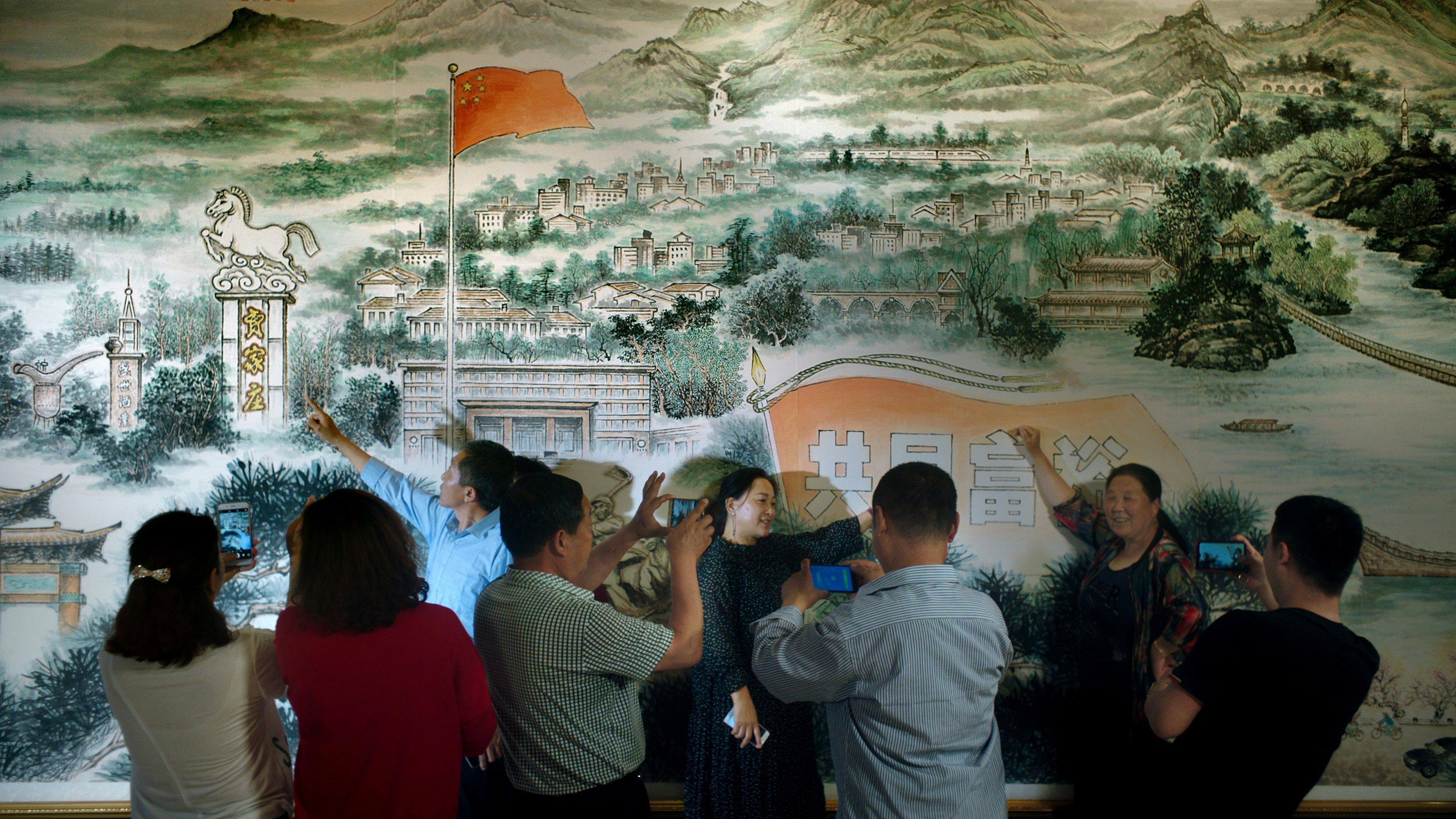
What does the documentary mode allow you to do that fiction doesn’t?
I love making documentary films for multiple reasons. The first is the sense of unknown that is different from other ways of making films. Whether in the subjects that I'm trying to capture, or the events, or just the space that I'm using for a particular documentary, on all these different levels, you have a sense of the unknown, something that I can’t plan ahead of time. By making documentaries, and encountering and experiencing these types of unknowns, I’m fulfilling my own curiosity to learn something new and expand my internal references.
The second reason is that as a documentary filmmaker, you need to react immediately, without hesitation to something that’s happening right in front of you using film language. That kind of reaction, or reflex, is very fulfilling.
The third reason is that in China right now, because of the fast pace of development, you also see the fast pace of destruction. In the time span of just one generation, a lot of things that happened in the past are no longer remembered or talked about, almost as if they never happened. I feel compelled to make documentaries because I need to somehow capture those first-hand witness accounts of people who can help us get our memories, our histories, back. It’s almost as if I'm building an archive by making documentary films.
You've made documentaries about painters, fashion designers, and filmmakers. Why writers, this time?
Since 1993, I’ve lived in Beijing, the capital of China. But for the past three or four years, I’ve been going back and forth between Beijing and my rural village. It's the same place where the documentary is set, the Jia family village. I’ve found it fascinating to reconnect with the rural culture, the roots that I come from.
If you look at 5000 years of history in China, it is not until 30-40 years ago that you have this major transformation of urbanization. For thousands of years, we have been living in agricultural and rural settings, and that has informed how we live and how we build interpersonal relationships, and the ways of life that shape us as a nation. Suddenly, in the last few decades, you have waves of young people leaving villages to live in urban cities. And the next generation slowly has completely forgotten or disengaged from their parents’ rural backgrounds and ways of life. For me, this documentary was very much about capturing those memories and histories.
I thought, what’s be the best way to capture that? And I thought of authors. The four that I selected and included in this film were born and grew up in rural culture, and they are key observers of the rural past. Not only do they write fictional stories about the past or about villages, but they also offer their own first-hand accounts of what happened to them while growing up in that environment.
Another compelling reason why I wanted to utilize authors is because I think this is the question we all ask ourselves: How did we become who we are now? That requires that we look back upon where we came from. Just to give you two examples. For the past three or four years, airlines have become a popular means of transportation in China. We all know that we are assigned a seat with the ticket that we have already purchased, but people still try to rush to their seats and get on the plane. I think that has a lot to do with our past and the scarcity of resources in rural areas, which forced people to fight and compete for limited resources. People somehow have that same mentality even now.
That’s maybe a negative impact, but we can also see the positive impacts of the past. A lot of people in contemporary China work from 7:00am all the way to midnight. They're diligent industrialists. I think that’s also rooted in our past experiences, in the scarcity of resources. We still maintain the sense that you have to be very, very productive in order to be successful.
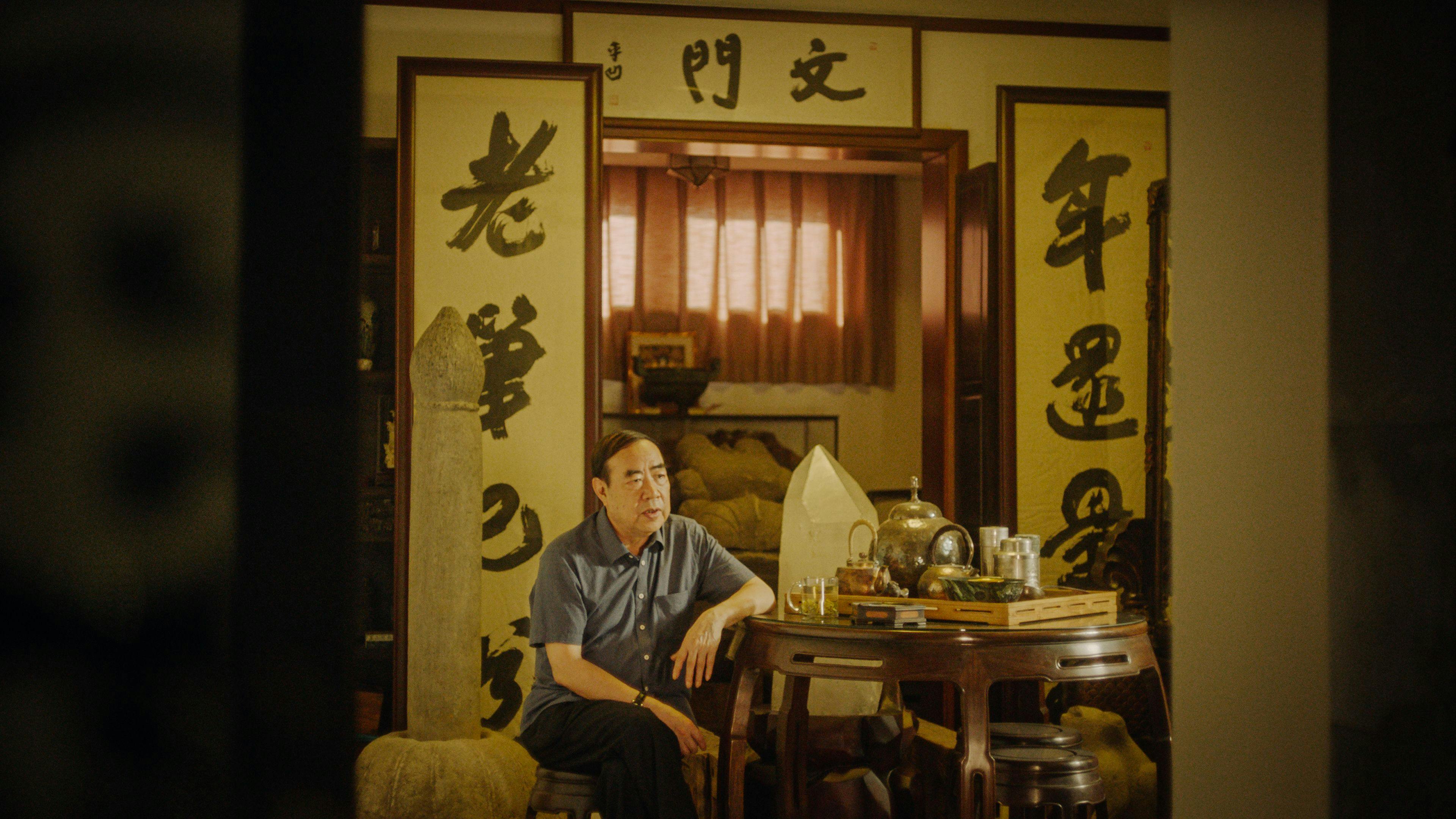
That reminds of something I was really struck by in the movie, which is the relationship between manual labor and art. Both Yu Hua and Jia Pingwa talk about how they fell into artistic occupations accidentally, while doing other jobs—Jia was painting slogans on reservoirs; Yu Hua just wanted to not be confined in an office, and wanted a job walking around outdoors like the employees of the Cultural Bureau. These stories made me wonder: what kind of labor do you consider art or cultural work to be? Especially when compared to agrarian and manual labor?
Writers and authors are manual laborers as well. They have different responsibilities than physical and manual laborers, but at the same time, I see them as laborers, too. There's a phrase that we use in Mandarin: “To use your pen to cultivate.” Just like peasants and farmers use tools to cultivate the land, authors use the pen to cultivate the spiritual landscape. Peasants have to work under harsh elements, like the wind and the sun, to grow crops. For a lot of writers, they also have to take on a kind of spiritual journey that can be very harsh in order to write something great and meaningful.
That's definitely validating to hear as someone who writes for a living!
I need to add something. The impetus to write about rural life has a lot with these writers knowing that, especially in the past, most people in the villages were illiterate. They often had no way of expressing or capturing their stories or memories through words. So these authors take on the responsibility of documenting those stories, whether it’s with a paintbrush or a pen.
And even though they’re writing about rural characters and histories, these writers are very much connected to how the literary landscape has evolved in the past years—internationally, even. Whether by echoing post-modern styles, or something Kafkaesque, or [drawing from] Faulkner or Marx, they are using a lot of different references. [In the film,] we go from Ma Feng, who wrote in a collectivist environment and mentality, to Yu Hua’s individualist way of writing, to Liang Hong, who writes about not just individualist but also extremely personal and private memories and histories. The evolution of the entire global literary landscape can be seen in how these writers talk and write about rural life.
The beauty of the film really comes from the oral storytelling of the authors. They express themselves so candidly and eloquently, which reflects on your skill as an interviewer. What do you think makes a good interview?
During the research stage of this documentary, I approached many well-known and celebrated authors, about eight or nine, as potential subjects. The way I approached it was to not only read their writings, but also to watch everything I could get my hands on in terms of past interviews. And I noticed that sometimes they would be talking about certain issues, and they would stop just when it got interesting. They had clear boundaries for where they would go and where they wouldn’t not go.
I was curious about those unsaid parts of the interviews. It took me a long time to communicate to them what I actually wanted to capture. I wanted them to not just be a talking head and offer some type of political, economic, or social commentary, because I think that kind of commentary should come from the audience, the viewers. For me, the most important thing was for my subjects to talk about the details of their lives back in the day, during their rural upbringing. And I really wanted them to share personal experiences that they hadn’t talked about in public, but which were very meaningful and crucial to understanding the past. As a filmmaker, those were the important things for me, and I didn’t want to compromise on the content of the film.
Out of the 8-9 people I approached, some decided not to participate because they didn’t want to share those things. So at the end, these are the four people who I felt really opened themselves up to the audience, and were vulnerable and candid and brave. I'll give you an example: Jia Pingwa, in many, many interviews that he did in the past, always mentioned that he was forced to go back to the rural village in middle school because of his father. But he never talked about the actual reasons. So while doing our interview, I just asked him directly, "What are the exact reasons? Why did you have to move back because of your father?” And he was gracious and honest enough to share that with the audience. [Jia Pingwa shares in the film that his father was branded a counter-revolutionary and condemned to manual labor.]
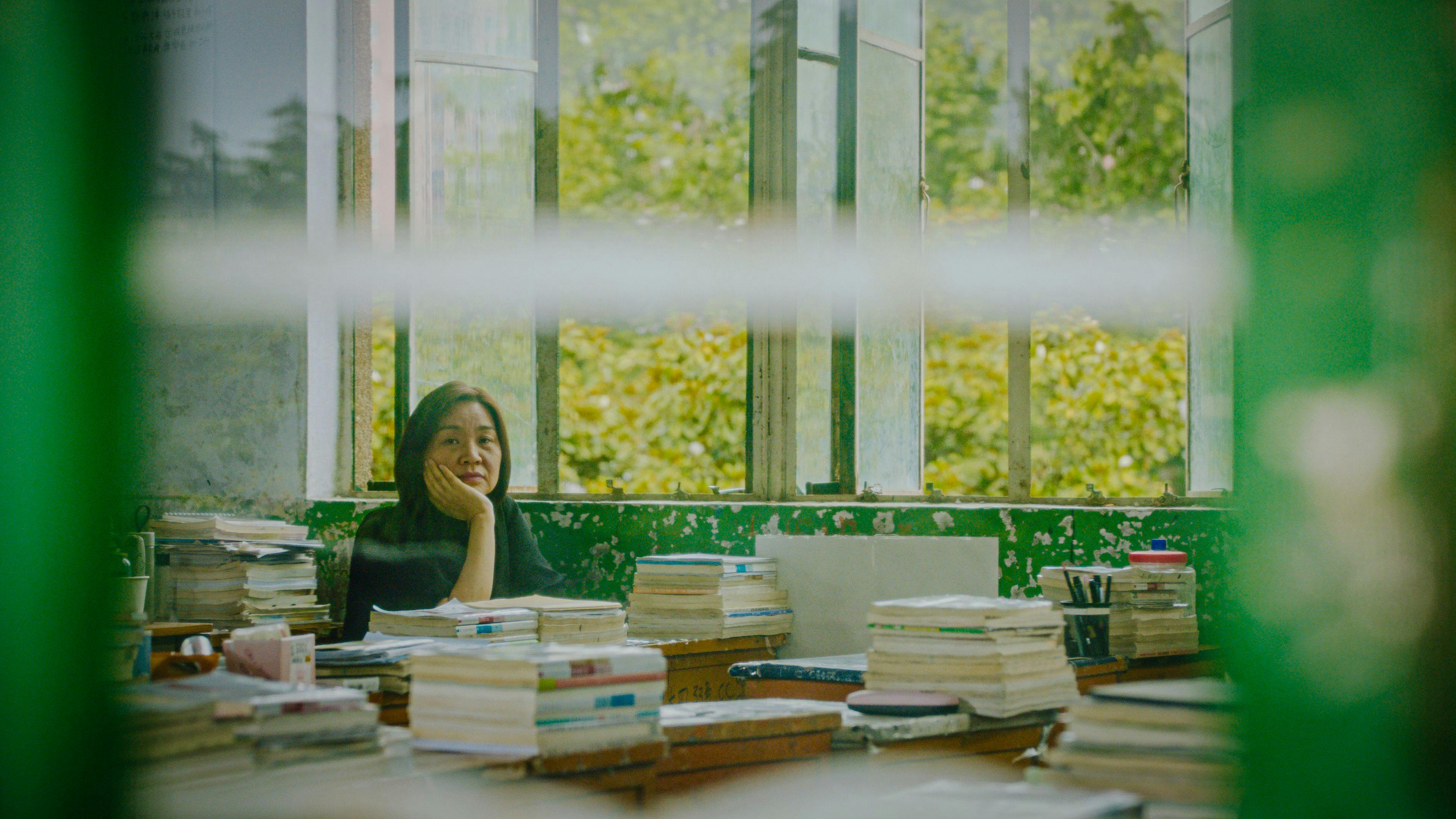
I was very moved by the scene you included of Liang Hong’s sister reading her father's letter. It’s not literature, it's a personal letter, yet it feels like one of the most beautiful pieces of literature in the film. Why did you decide to include it?
I have to thank Liang Hong because she provided me with the letter that her sister reads out loud in the film. And she also gave me the idea for how to structure this film, because the way she was talking about her father, her sister, her son—those elements immediately trigger for any Chinese person a sense of familiarity; a sense that these are the exact familial structures that we all know.
So the letter was not only a good way to have a sense of the details of life at that time, in those rural environments, but it also helped me decide how I was going to structure this film—not only linearly, chronologically, but also by finding those 18 chapters or issues that we can all relate to; common experiences that we all share.
***
Devika Girish is the Field Notes Contributing Editor. She is the Co-Deputy Editor of Film Comment magazine and a Talks programmer at the New York Film Festival. Her writing has appeared in The New York Times, Reverse Shot, Village Voice, Sight and Sound, the Criterion Collection, and other publications, and she has served on the selection committees for the Mumbai Film Festival and Berlin Critics' Week.
Stills courtesy of Jia Zhangke. Swimming Out Till the Sea Turns Blue (2020).
